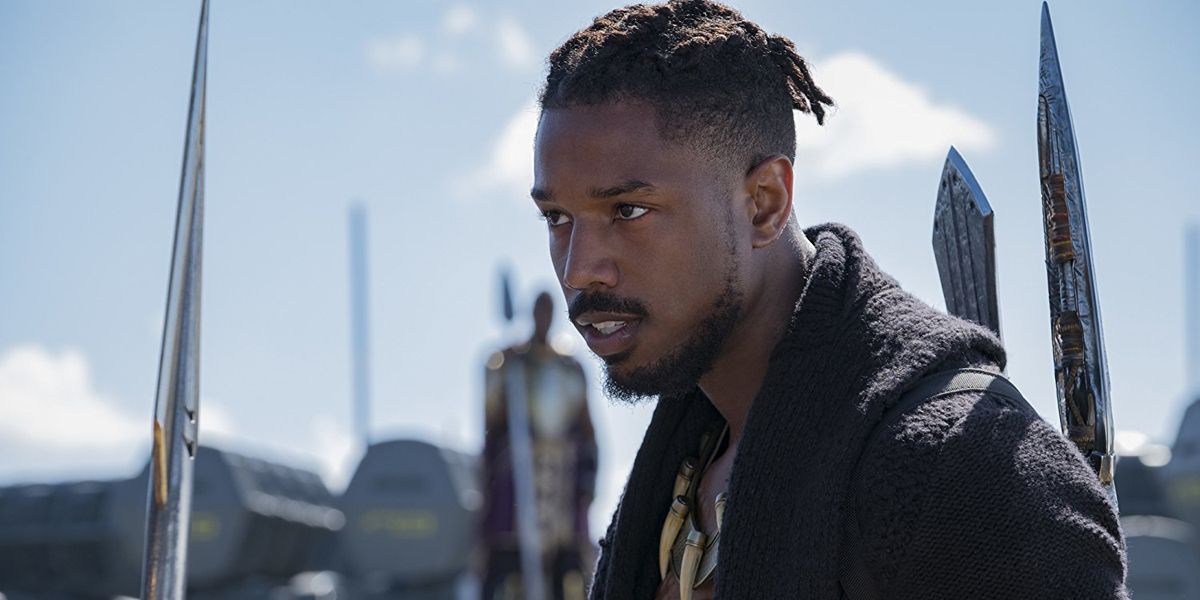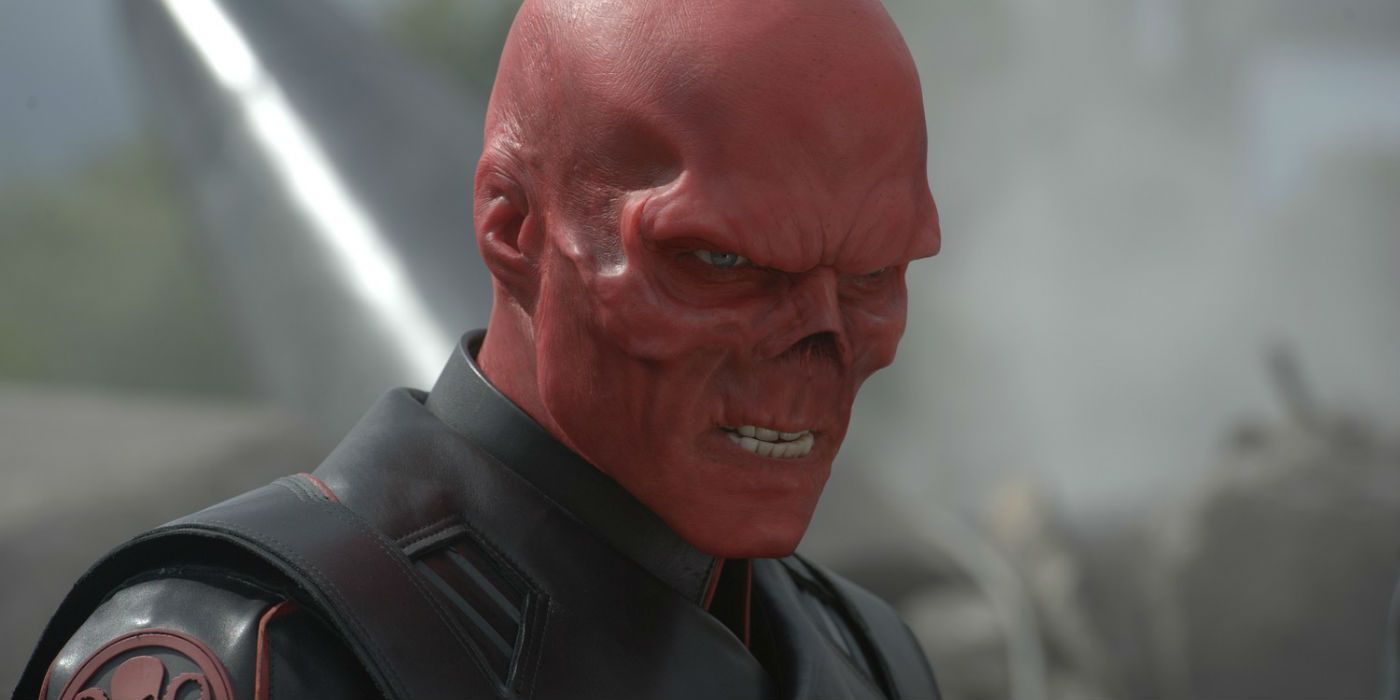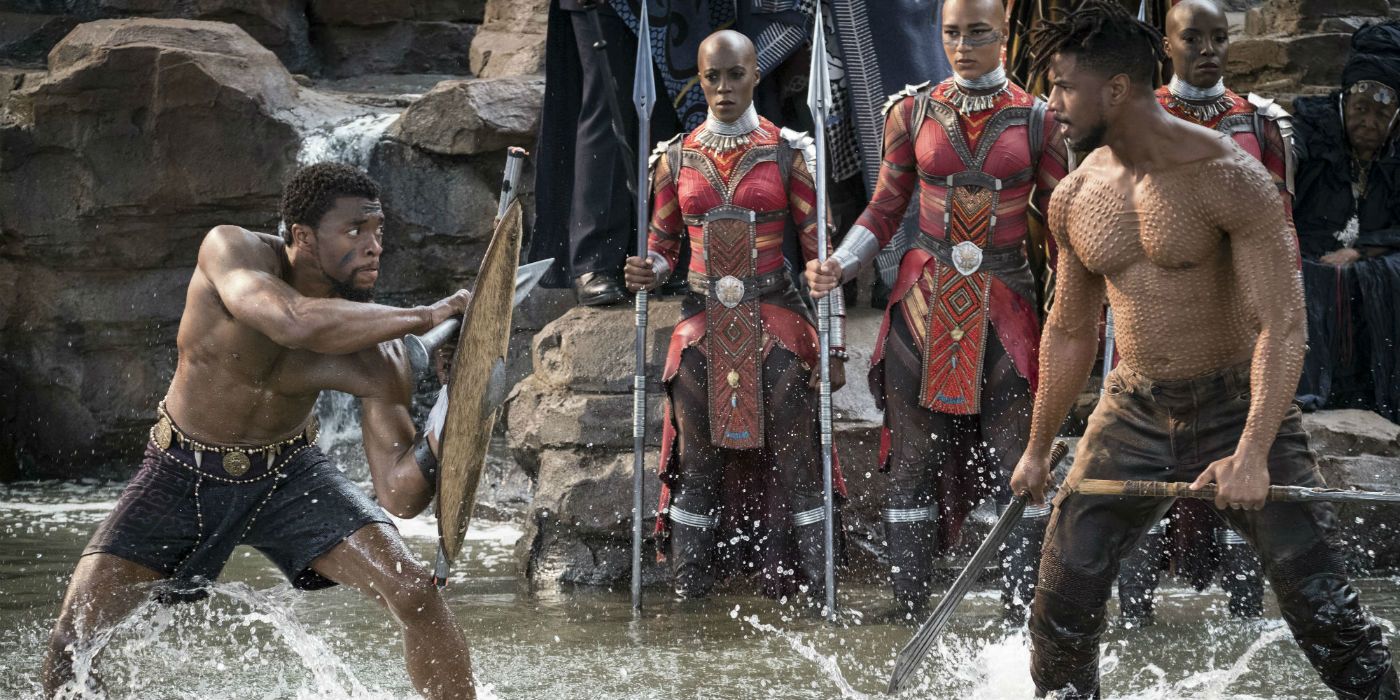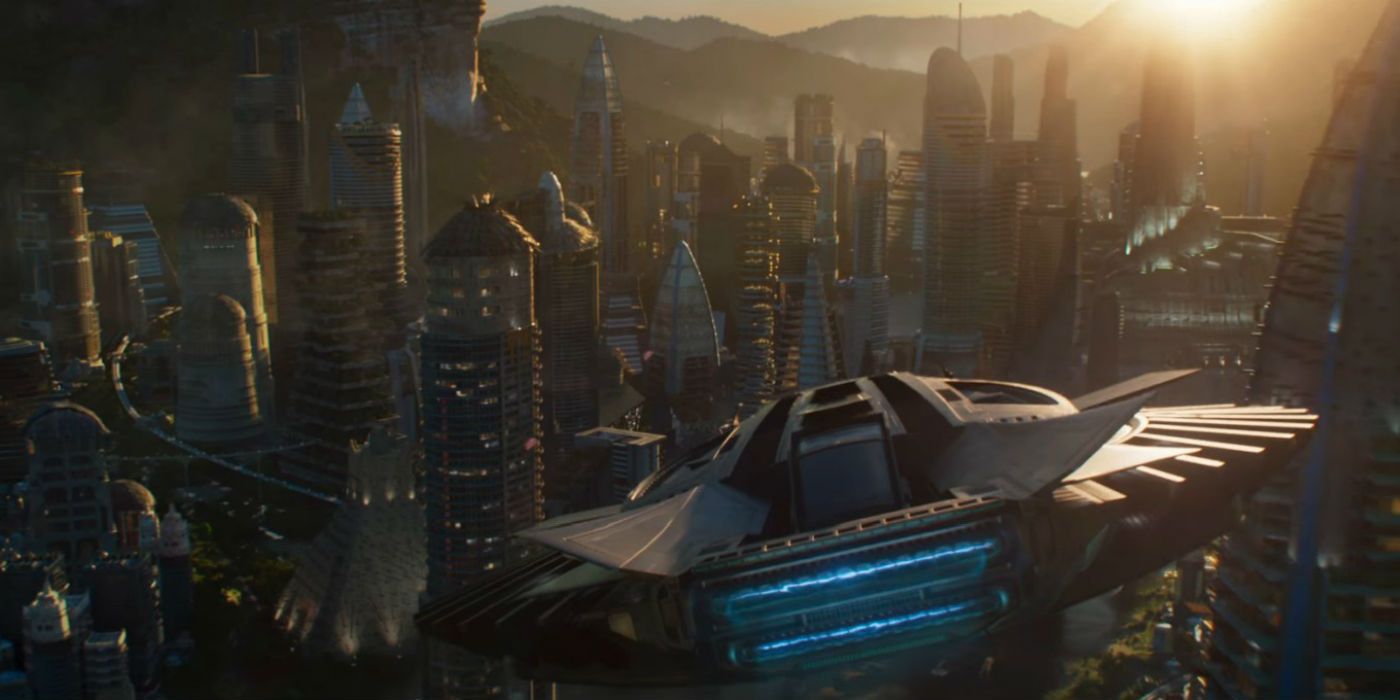WARNING: The following article contains major spoilers for Marvel's Black Panther, in theaters now.
Earning widespread critical acclaim, Marvel's Black Panther is a bounty of wonderful things, with its awesome fight scenes, fantastical setting, compelling hero and equally fascinating villain. Out of the many incredible elements introduced into the Marvel Cinematic Universe through Black Panther, Erik Killmonger (played by Michael B. Jordan) is easily among the most impressive. It may not appear that way until you look past the character's scheme to dominate the world with Wakanda's advanced weaponry and, effectively, destroy it. The devil is in the details, and those make arguably the most complex antagonist in the MCU.
RELATED: Can Avengers: Infinity War Overcome the MCU’s Villain Problem?
The MCU's villains, along with those of most action films, tend to follow a formula. They're constructed from a singular template character, which mimics and twist the hero's flaws to facilitate character growth. In Iron Man, it was Iron Monger who represented corporate greed, something Tony Stark attempted to tear himself away from. In Captain America: The First Avenger, we saw the Red Skull, who served as the antithesis of the protagonist, an exhibition of Captain America's power and dedication to ideology when in the wrong hands.
Then you have villains who lean closer to a moral gray area. Spider-Man: Homecoming's Vulture, for instance, was less of a dark reflection of the wall-crawler's identity and more of a question posed to the audience: What makes an ordinary person good or evil? Michael Keaton's Adrian Toomes was just was just another guy working to support his family. To him, the enemy was someone like Tony Stark, who seemed to pay no attention to the little people below. What makes an ordinary kid like Peter Parker that much better? In the end, we see that Peter adheres to his values, so he isn't corrupted by the same greed and hate sent the Vulture down his shadowy path. It's relatively grounded commentary on society.
RELATED: How Marvel's Black Panther Sets Up a Sequel
The formula works, obviously. However, for the most part, these villains never become as great as they could be. Their stories and development typically lead to the same outcome: a huge battle between good and evil, out from which the hero emerges, galvanized by his ideals but relatively unchanged. The audience frequently empathizes with the antagonist on some level, but the character's arc is generally simplistic, and in service to the hero's story.
Now we have Killmonger, who exhibited some expected supervillain tropes: His plan was to take over Wakanda, and then use the nation's technology to take over the world, which is pretty much the scheme of every supervillain ever. But his reasons for doing so are far deeper than those who came before him.
Page 2: [valnet-url-page page=2 paginated=0 text='In%20Black%20Panther%2C%20Killmonger%20Isn%27t%20Driven%20By%20Greed']
He's relatable as a man looking for justice for personal loss, but Black Panther doesn't limit him to that. N'Jadaka -- that is, Erik Killmonger -- was abandoned by his king and his nation after his father was killed for treachery, and for trying to kill Zuri. His father, N'Jobu, sold Vibranium, not out of greed, but out of a desire to save black people everywhere from the cruelty of prejudice and the effects of centuries of oppression. In essence, it was a noble cause, so it's unsurprising that N'Jadaka fought to see it through. He trained and killed so he could overthrow what he perceived to be a murderous and antiquated regime, with the aim to use Wakanda's technology and wealth to liberate those of African descent around the globe.
It's easy to see how, despite his brutal methods, N'Jadaka could be seen as a hero, which is why he immediately garnered support from T'Challa's friend W'Kabi. Killmonger demonstrated a willingness to do whatever it takes to accomplish his goals; he possessed a sense of purpose. Unlike other MCU villains, he wasn't wholly driven by revenge, and he didn't make empty, grandiose threats. There was more to him than that.
That's what makes him so vital to the film. His conviction didn't just serve him as a character, it had lasting effects on T'Challa's development, as we see when the king decides to fully introduce the world to Wakanda and its many secrets. He's finally certain that isolationism is no longer in the best interest of his people, and that unity and compassion is the way forward.
RELATED: What's Erik Killmonger's Big Plan in Black Panther?
Black Panther wants to discuss Afrofuturism, race, identity and the conflicting aspects of tradition and modernism, and Killmonger is the perfect antagonist to properly convey the complexities of the film's themes. He's a Wakandan who was raised in the United States. It's a backstory that connects him to his homeland but imbues him with a modernist perspective, and rids him of any compunctions about disregarding centuries of custom and tradition.
His background and his cause also highlight brotherhood and sisterhood as an aspect of black culture. He questions the divides between those of African descent; as far as he's concerned, as long as their roots are in Africa, he will fight to bring them justice. After living in the United States, he understands prejudice better than perhaps Wakandans can, especially because he doesn't come from a place of privilege. We see that when he's in the museum and he uses the passive prejudice of the staff against them, because he knows they were watching him more intently than anyone else.
Finally, there's Afrofuturism, explored through Wakanda and Killmonger's vision for the world. After taking Wakanda, N'Jadaka immediately begins preparations to send Wakanda's weaponry to agents across the globe. The end game for him is to conquer and spread Wakanda's power and wealth so that, after all the necessary blood is spilled, no one will have to suffer oppression. He believes that under Wakandan rule, the world can advance further than anyone has previously believed. For him, that's a noble cause, but as T'Challa points out in the third act, it's evidence that Killmonger has been blinded by his hate and allowed himself to become the very thing he loathes.
RELATED: Black Panther’s Dramatic Ending, Explained
No other major MCU villain has shown this much complexity. We've talked about how the Vulture, much like Killmonger, offers some amount of commentary on society. However, the Vulture is very clearly a criminal. He's relatable and understandable, but ultimately, there is a line he crosses very early in Spider-Man: Homecoming that prevents audiences from forming a deeper connection. He's a great antagonist, but a relatively simple one. Killmonger, on the other hand, connects with viewers on a much deeper level because his motives aren't just based on issues people face in everyday life. His character is an argument about identity, unity and values, which form various crises of their own, affecting not just the individual but society as a whole, and each one without a clear solution. It's why so many people who won't necessarily agree with Killmonger will nevertheless find resonance with him.
Now in theaters, director Ryan Coogler's Black Panther stars Chadwick Boseman as T’Challa, Lupita Nyong’o as Nakia, Daniel Kaluuya as W’Kabi, Letitia Wright as Shuri, Danai Gurira as Okoye, Angela Bassett as Ramonda, Martin Freeman as Everett K. Ross, Andy Serkis as Ulysses Klaue, Winston Duke as M’Baku, Forest Whitaker as Zuri and Michael B. Jordan as Erik Killmonger.




